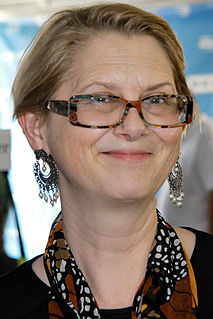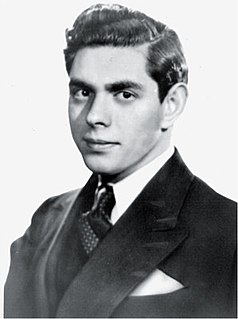A Quote by Marilynne Robinson
Isaac Watts, of course, is a hymn writer in the tradition of Congregationalism who lived in the seventeenth and early eighteenth century. He is very interesting and important because he was also a metaphysician. He knew a great deal about what was, for him, contemporary science. He was very much influenced by Isaac Newton, for example. There are planets and meteors and so on showing up in his hymns very often. But, again, the scale of his religious imagination corresponds to a very generously scaled scientific imagination.
Quote Topics
About
Again
Also
Because
Century
Contemporary
Course
Deal
Early
Eighteenth Century
Example
For Example
Great
Great Deal
Him
His
Hymn
Hymns
Imagination
Important
Influenced
Interesting
Isaac
Knew
Lived
Meteors
Much
Newton
Often
Planets
Religious
Scale
Science
Scientific
Showing
Showing Up
Tradition
Up
Very
Very Interesting
Writer
Related Quotes
Great scientific minds, from Claudius Ptolemy of the second century to Isaac Newton of the seventeenth, invested their formidable intellects in attempts to deduce the nature of the universe from the statements and philosophies contained in religious writings.... Had any of these efforts worked, science and religion today might be one and the same. But they are not.
There is a reward structure in science that is very interesting: Our highest honors go to those who disprove the findings of the most revered among us. So Einstein is revered not just because he made so many fundamental contributions to science, but because he found an imperfection in the fundamental contribution of Isaac Newton.
I don't think it's good to achieve too much at too early an age. What else can the future give you if you've already got all that your imagination has dreamt up for you? A writer is only discovered once in a lifetime, and if it happens very early the impossibility of matching that moment again can have a somewhat corrosive effect on his personality and indeed on the work itself.
We were great mates [with Rajiv Gandhi]: very, very, very close friends. In fact, on my visit to India as Prime Minister, we were going to his home for dinner. There were two aspects I remember: one is him saying how he had trouble with his security people, because they insisted he wears a vest. He said it was very uncomfortable and he often took it off, but of course, in the end, it wouldn't have mattered if he'd been wearing three vests - he would have been gone.
A couple of hundred years from now, maybe [science fiction writers] Isaac Asimov and Fred Pohl will be considered the important philosophers of the twentieth century, and the professional philosophers will almost all be forgotten, because they're just shallow and wrong, and their ideas aren't very powerful.
You can say the president's private life takes up so much of his time that he doesn't focus on his job, so therefore he's terrible. But in my imagination, the 23 hours of the day that we don't experience, he's very hard at work. He's quite an effective and successful president - in my narcissistic imagination.







































